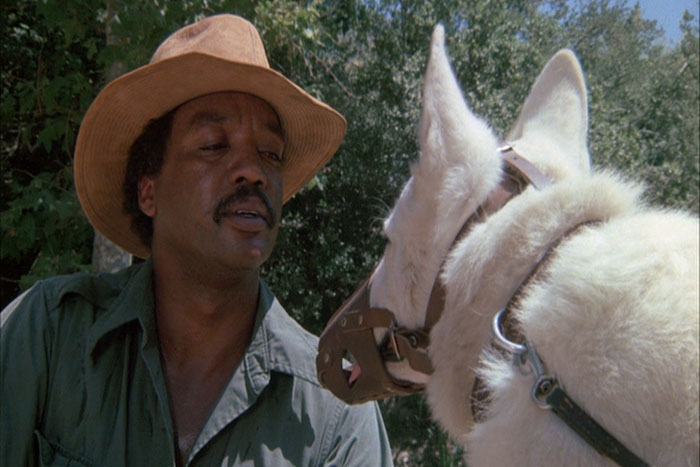
Directed by Sam Fuller
35 mm color film
90 minutes
Paramount Pictures
The inquiry into race undertaken by American filmmakers over the past half-century has resulted in a range of approaches to the subject of racism. Samuel Fuller’s White Dog, a film so graphic and uncompromising that Paramount banned its release in the United States, plays on a violent symbol of racial prejudice: a white dog trained to attack and kill people with black skin. Kristy McNichol stars as an actress who adopts a lost German shepherd, only to discover through a series of horrifying incidents the dog’s shocking secret. Paul Winfield plays an African American animal trainer who attempts to reprogram the vicious animal. The difficulty, and futility, of his efforts constitute the film’s central metaphor: that white racism is so innate that it is incurable.
Adapted from Romain Gary’s 1970 autobiographical novel White Dog, the film offers a stark and uncompromising view of white racism, ironically at a time when the modern civil rights movement had drawn to a close. It is at once lurid and troubling: “Filmed in headlines, framed as allegory, a movie of constant hyperbole and borderline absurdity,” the film critic J. Hoberman writes, “White Dog combines hard-boiled sentimentality and hysterical violence, sometimes in the same take.” If the film’s conclusion is pessimistic, its take on white racism outside the South—its locale is Los Angeles, one of the nation’s largest cities—and on the intractability and depth of racial prejudice sets it apart from many other “race films” of the period. White Dog was eventually released to theaters as a specialty art film in 1991. In 2008, The Criterion Collection released it as a commercial DVD, making it widely available for the first time.
Maurice Berger